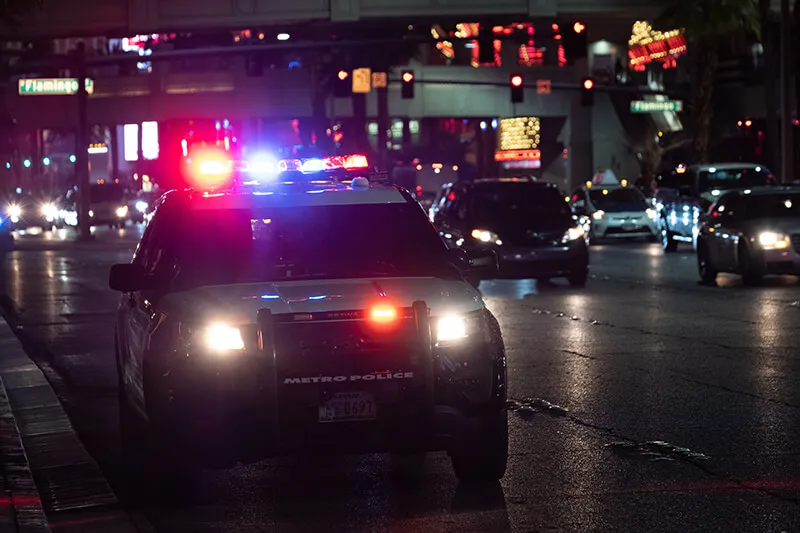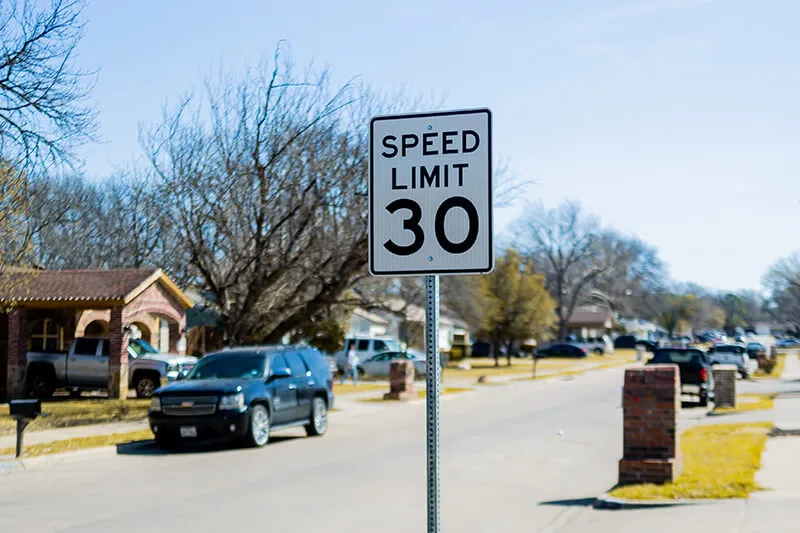Although it doesn’t appear that way traveling through Georgia, the legislature has taken steps to rein in profit-motivated traffic enforcement at times. There is no doubt that it has a long history in Georgia, but not as long as those of similar local revenue-building efforts.
In order to understand the history of anti-speed trap laws, it is important to begin in Ludowici. John Grisham’s Southern Lit magazine, The Oxford-American, has an excellent article on Ludowici’s history. A small town near Florida called Ludowici became notorious for handing out speeding tickets to travelers heading to and from Florida in the fifties. In the town, traffic fines accounted for 25 percent of the total income. Ludowici’s reign of terror over Florida-bound tourists ended only with the opening of Interstate 95 after gubernatorial and legislative efforts to halt it failed.
To curb local efforts to pad their budgets from passing travelers’ pockets, there are basically two sets of laws.

Control over Speed Detection Device Use
State-approved speed detection devices must be purchased by municipal and county governments in order to operate speed detection devices. In order to obtain a permit, law enforcement agencies need to prove their legitimacy (staffing, training, etc.), list the roads and locations where the devices will be operated, and post signs at boundary areas to let travelers know the devices are being used.
The courtroom defense of a speeding citation can involve some of these requirements. They are:
-
During each duty shift, local law enforcement operators must test each device for accuracy (O.C.G.A. § 40-14-5)
-
Police officers must notify drivers of the possibility of an accuracy check when making a stop based on speed detection devices. Unless the device is accurate, the officer must check it before issuing the ticket, and if it fails the accuracy test, the officer must not issue the ticket. Observation of the accuracy check is not permitted by the driver (O.C.G.A. § 40-14-5)
-
It is possible to defend such tickets by not placing the required warning signs (O.C.G.A. 40-14-6).
It is possible to take away what has been given. A state can revoke a permit if it determines that an agency is not complying with the laws by using the devices. Speed detection device privileges can be suspended or revoked by Georgia for individuals, counties, and municipal governments. (O.C.G.A. § 40-14-11)
A particularly interesting rule relating to that process relates to the financial assessment of local governments. According to what I recall, this one arose from the Atlanta Journal-Constitution’s investigation of Pine Lake in DeKalb County.
The rule is that if a municipality or county law enforcement agency’s annual budget is 35 percent or more, then it is presumed that its speed detection permit is being improperly used. It includes citations for violations of O.C.G.A. § 40-6-180 (too fast for conditions) and O.C.G.A. § 40-6-181 (speeding) but not fines for speeds exceeding the speed limit by 20 miles per hour. (O.C.G.A. § 40-14-11)

The Actual Speed Trap Defenses
In many states, there are limits on how speed detection devices can be used by law enforcement. Evidence of the readout of the device is inadmissible as evidence in court.
-
O.C.G.A. § 40-14-9 prohibits the operation within 300 feet of a speed limit reduction in an incorporated municipality.
-
In an incorporated municipality or inside a consolidated city-county government, operations are prohibited within 600 feet of a reduction in speed limit (O.C.G.A. § 40-14-9)
-
Except for highway work zones, no operations are permitted within 30 days of a new posting of a reduced speed. O.C.G.A. § 40-14-9)
-
There should be no operation on any portion of a highway where the grade exceeds 7 percent. (O.C.G.A. § 40-14-9)
-
Neither the operation of stationary speed detection devices from vehicles obstructed by approaching motorists nor the operation of stationary speed detection devices from vehicles that cannot be seen at least 500 feet away. (O.C.G.A. § 40-14-7)
-
A speed detection device cannot be used as a basis for the issuance of a citation unless the vehicle exceeds the speed limit by more than 10 miles per hour above the limit. There are a few exceptions, including (1) in schools with properly marked zones and close to school hours, (2) in historical districts with properly marked districts, and (3) in residential areas with properly marked districts. (O.C.G.A. § 40-14-8)

The Exceptions to These Rules
In order to avoid these limitations, there are a number of things that can be done.
State law enforcement is not subject to these rules of operation. It is possible for officers of the Georgia State Patrol to hide behind shrubs, trees, and low billboards while using their speed detection equipment. It is possible for them to operate in hilly areas as well. Because of the abundance of vehicles operating substantially above ten miles per hour, they probably would say that they don’t need to use such tactics.
As a way of ensuring that the agencies don’t exceed the financial limits, they can issue tickets for a wide range of other offenses: inoperable lights, not using wipes when it rains, obscured tags (films or plates), no insurance, expired tags, defective equipment, etc.
Modern radar and laser detection units are capable of detecting objects up to 300 or even 600 feet away. A primary concern when tracking a vehicle by line of sight is its size. Trucks, pickup trucks, and sedans can be detected by a radar speed detection unit up to a mile away, and tractor-trailers can be detected up to three-quarters of a mile away.
Radar Detection Devices
The average person may find it difficult to fight speeding tickets. The officer (and his or her radar gun) will often take your word against the officer’s. An experienced Georgia traffic lawyer can help you if you have recently been charged with speeding.
The police department’s laser or radar device was not properly maintained or calibrated, many people claim. Using this defense is tricky, as you need regulations, records from the police, and documentation about the device. Law enforcement traffic enforcement operations in Georgia can be alerted to by radar detectors and crowd-sourcing apps like Waze. Forewarned is forearmed.
Conclusion
Keeping your speed within posted limits is the most effective way to protect yourself. Although speeding on some interstates and Atlanta-area highways may not be as dangerous to your finances, it can be dangerous to your health and safety.
